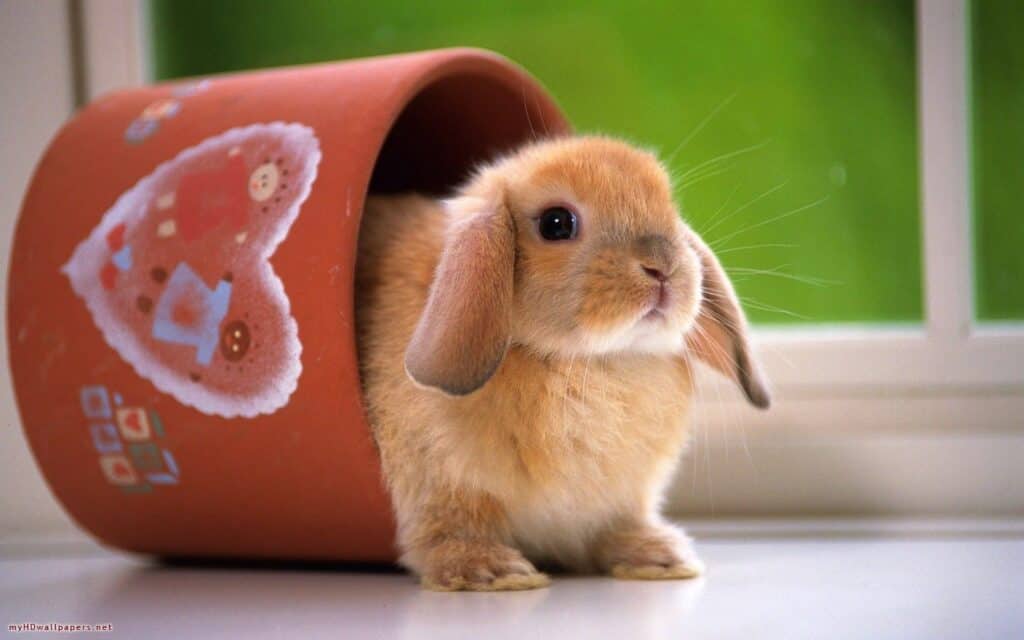
Rabbits

Want to adopt a rabbit?
Rabbits are one of the most common exotic animals kept as pets, and they can make wonderful companions. Browse our Rabbits category to find Bunnies available for adoption from breeders in a variety of colours, shapes, and sizes – https://petsaotearoa.co.nz/browse-listings/.
They’re ideal pets for tiny living spaces because they don’t take up much space, don’t require much exercise, and are normally extremely quiet.
Rabbits are typically attractive and cuddly, and they can form tight bonds with their owners and respond to them through sight and sound. Unfortunately, too many individuals acquire rabbits impulsively, especially around Easter time, due to their charming appearance, without knowing what type of care or resources these animals require.
As a result, prospective rabbit owners may get disillusioned with their pets once they understand that properly caring for these creatures takes time and effort. As a result of impetuous bunny adoption, far too many bunnies end up in shelters.
If you’re thinking of adopting a rabbit, there are a few things you should consider before doing so:
Rabbits have a long life expectancy.
Rabbits can survive for eight to twelve years with good nutrition and medical care, which is longer than many other small animal pets.
So, before you adopt a rabbit, be sure you’re ready to care for, feed, and house a pet for that long.
Bunnies make the best indoor pets.
Pet rabbits, unlike their wild counterparts, have longer and healthier lives when kept inside. Outside, deadly wild predators such as hawks, cats, and stray dogs feed on these prey species.
Furthermore, their thick fur coats and lack of sweat glands cause them to readily overheat in temperatures above 80 degrees Fahrenheit. Rabbits, on the other hand, have minimal fur on their ears and the bottoms of their feet, making them vulnerable to frostbite if they are outside in cold weather.
If rabbits are permitted outside, they should be given shade if it is too hot outside, and a warm location if it is too chilly outside.
When they are outside, they must have access to drink at all times and be watched at all times to protect them from predatory wild animals.
Rabbits require physical activity.
Rabbits, unlike dogs, do not need to go outside or be walked, but they do require time out of their rabbit cages on a daily basis.
Daily activity helps them digest their food and protects them from gaining too much weight, and many rabbits enjoy running around and jumping on top of things. Rabbits should have access to a bunny-safe room or a fenced-in area indoors where they can explore.
They should never be left unattended outside of their cages, as they are known to chew on inappropriate objects (such as painted surfaces and electrical cables) and cause havoc.
Each bunny has a distinct personality.
Rabbits have personalities that are as diverse as people’s. Some rabbits are shy and timid, while others are outgoing and lively. Before bringing a new rabbit home, a person considering adoption should spend time getting to know the bunny’s personality to ensure it is compatible with their own.
Some rabbits are social, while others are shy and hide when they are first adopted. As a result, it’s vital that new owners spend time caressing and handling their rabbits to help them adjust to their new surroundings cheerfully.
New owners must always handle their rabbits carefully and softly, supporting their hind legs to ensure that they feel comfortable and secure.
When rabbits’ hind ends aren’t properly supported while being held, they can kick their powerful back legs and shatter their backs.
Rabbit Topics & Listings
To stay healthy, rabbits require a high-fiber diet.
Bunnies are herbivores (vegetable eaters) who require a huge amount of hay each day, not only to help wear down their constantly increasing teeth, but also to offer fibre to the bacteria that break down their food in their gastrointestinal (GI) tracts.
A bunny’s daily diet should consist of unlimited amounts of timothy or other grass hay, as well as a smaller amount of leafy green vegetables, such as romaine lettuce, carrot tops, endive, basil, kale, cabbage, radicchio, wheat grass, squash, brussels sprouts, parsley, pea pods (not loose peas), collard, beetroot, or dandelion greens.
While alfalfa hay is suitable for young, growing rabbits as well as pregnant or nursing rabbits, it is not advised for full-grown rabbits as they approach one year of age due to its high calcium and calorie content. Hay can be placed in a bowl or hung within the cage in a commercially supplied basket or nett.
In general, rabbits should be given only a little slice of high-fiber apple, pear, plum, or peach every now and then. Carrots are heavy in sugar and should only be served in modest amounts.
Rabbits should be fed a limited amount of high-fiber, timothy hay-based rabbit pellets (no more than 12 cup per 4-5 pounds of rabbit weight each day) to ensure they get all of the micronutrients they require.
Consumption of too many pellets can result in diarrhoea and obesity. Seeds, cereals, and nuts should not be mixed with pellets since rabbits’ GI tracts are not adapted to digest these high-fat foods. These items can cause GI distress and weight gain if consumed.
Bunnies should be given fresh water every day in both a sipper bottle and a bowl, as different rabbits have varied drinking preferences.
More Pet Topics
Bunnies are extremely conscientious groomers.
Rabbits groom themselves frequently and keep themselves clean, therefore professional grooming is not required. Their nails, like those of cats and dogs, should be cut every few weeks, and long-haired breeds, like as the Angora, should be groomed weekly to avoid matting.
Unless excrement sticks to their hind ends, bunnies do not need to be bathed. Fecal pellets and cecotropes are the two forms of droppings produced by bunnies. Cecotropes are partially digested meals consumed by rabbits to obtain important vitamins and nutrients.
Rabbit cages should be lined with paper-based bedding (shredded newspaper or commercially made, recycled paper-based products) that is spot-cleaned daily and thoroughly cleaned once a week.
Bunnies can be readily trained to use a small litter pan in the corner of the cage that contains a different sort of paper-based bedding than the rest of the cage. The litter box should be scooped every day and thoroughly cleaned once a week.
Bunnies may coexist with other animals.
Rabbits are prey animals, whereas cats, dogs, and ferrets, among other regularly maintained pets, are predators with the urge to catch prey. These animals, on the other hand, can coexist peacefully in a single family if they are carefully monitored.
A well-intentioned predatory pet may merely want to play with a bunny by scooping it up in its jaws, but their sharp teeth, lengthy claws, and germ-laden saliva may cause harm to the rabbit. Dogs, cats, and ferrets, no matter how kind and nice they appear, should never be left alone with a rabbit.
All rabbits must chomp, chew and gnaw.
The teeth of all rabbits, both front and rear, continue to grow. As a result, bunnies must have access to an infinite supply of hay as well as safe rabbit toys to gnaw on, such as hard wooden blocks and sticks (such as commercially available applewood branches).
Rabbits will chew on furniture, mouldings, door frames, carpets, floors, wires, and other inappropriate objects if they are not given with safe chewing objects. When bunnies are out of their cages, they must be supervised at all times, and all areas they have access to must be bunny-proofed ahead of time.
In addition, because rabbits are notorious escape artists, their cages should be lockable.
Rabbits necessitate veterinary attention.
Bunnies, unlike dogs and cats, do not require annual immunizations, but they do require annual preventative veterinarian treatment, such as checks and faecal examinations to check for GI parasites. They should also be inspected by a veterinarian as soon as possible after adoption to ensure their health.
Furthermore, all female rabbits should be spayed at 6 months of age, as 70-80 percent of unspayed female rabbits develop deadly uterine cancer by the age of three.
Rabbits can be wonderful, long-lived companions when properly cared for, but they are not for everyone and should not be adopted on the spur of the moment.
If you learn about the care bunnies require and have the time to devote to them, a bunny waiting to be adopted can be found at your local rabbit shelter.





